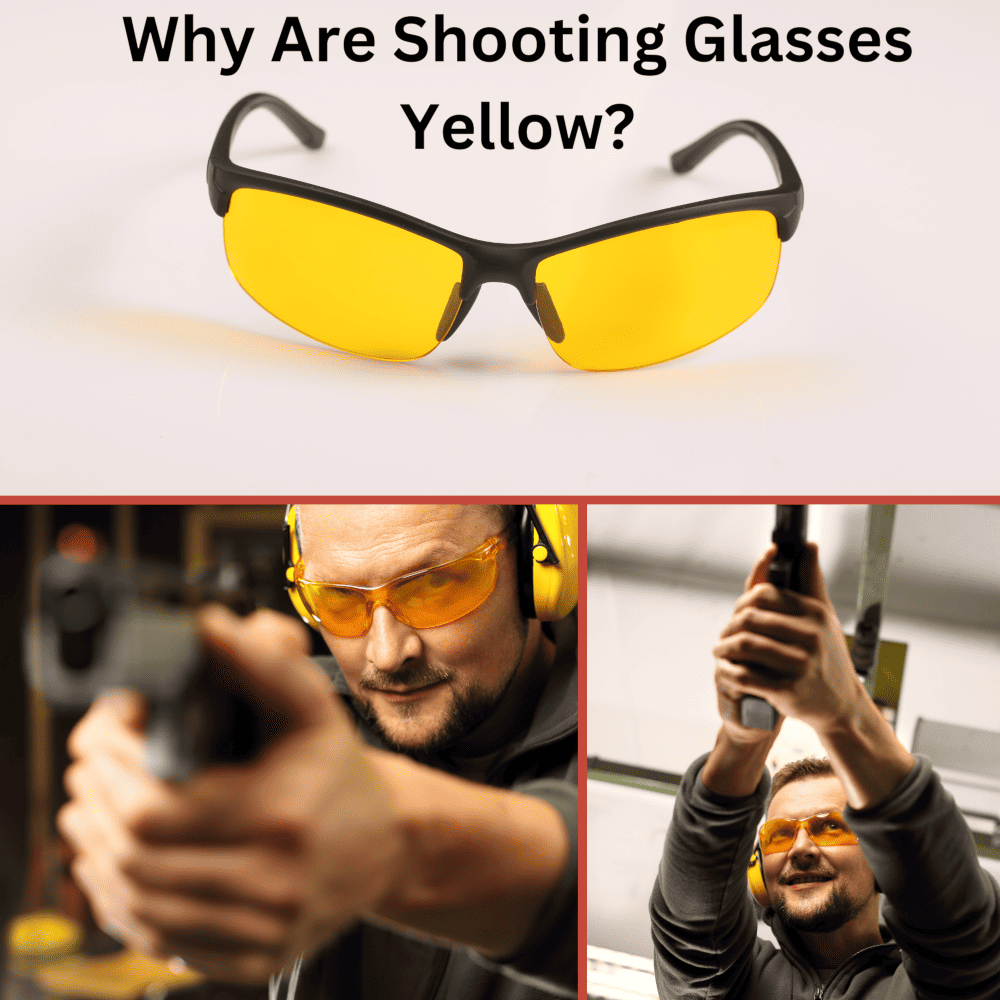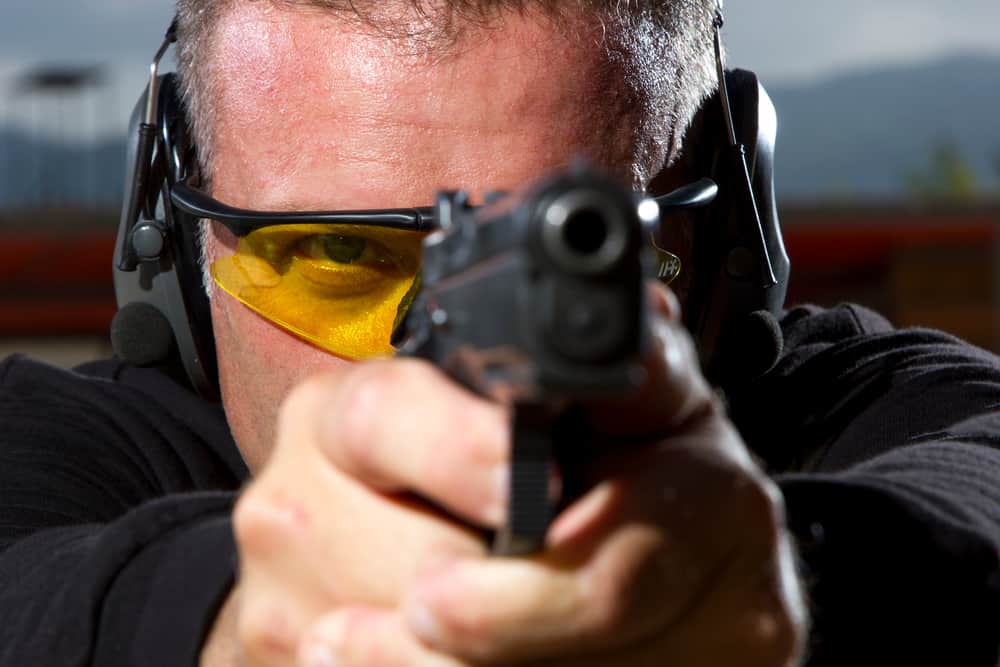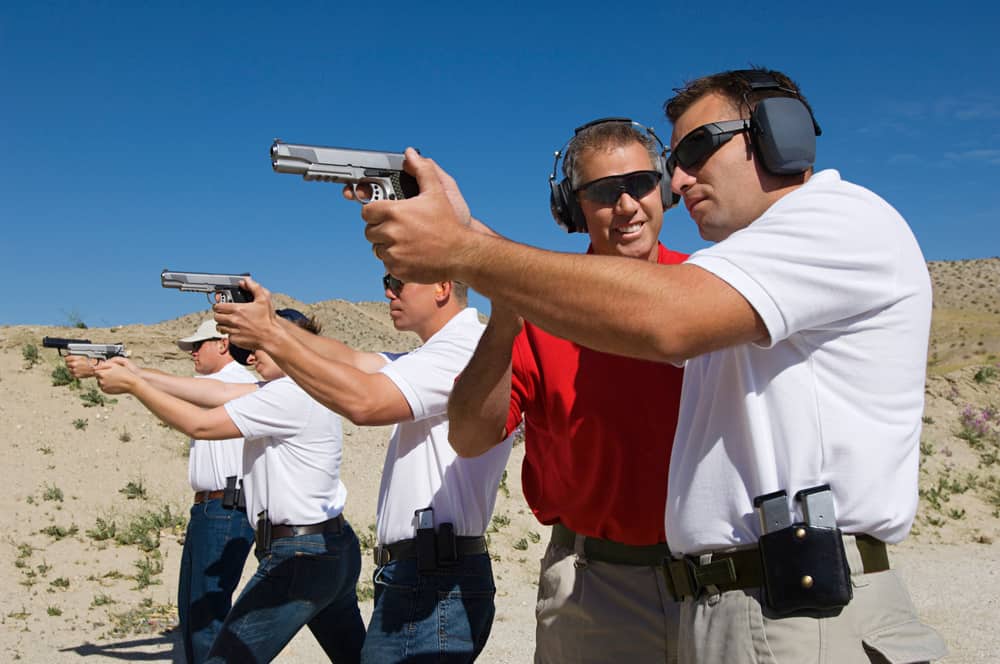Researching shooting glasses can be a confusing process, especially if you take note of all the technical specifications. One technical specification that seems to confuse people deals with the ANSI certification for shooting glasses. Some protective glasses are ANSI approved, while others are not. This ambiguity leads to several questions about the ANSI certification, including this very common question: what is the ansi rating for shooting glasses?
In this post, I’ll dive into ANSI as an organization and how its certification process can serve as an evaluation point in the buying process.
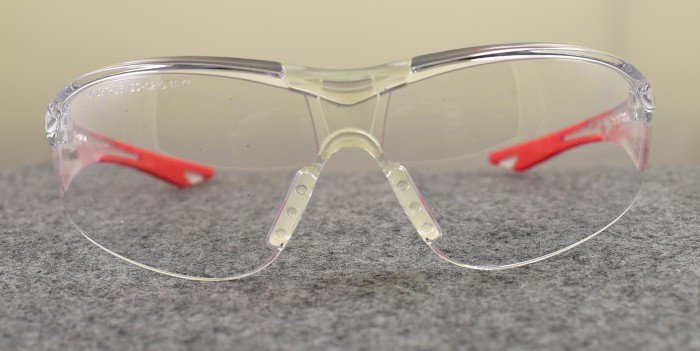
What is ANSI?
ANSI is an acronym for American National Standards Institute, which is a non-profit organization tasked with creating “voluntary consensus standards for products, services, processes, systems, and personnel in the United States” (from Wikipedia).
In a nutshell, this group is in charge of developing and enforcing uniform standards (or minimum requirements) for almost everything in the U.S. For the purposes of this post, I’ll be focusing on the standards they create for products with an emphasis on safety glasses and shooting glasses.
What is ANSI Z87+?
The ANSI Z87+ is the standard that ANSI adopted governing eye protection and face protection devices manufactured and sold in the United States. From a shooting glasses and safety glasses perspective, the Z87 standard provides minimum requirements for aspects such as:
- Optical quality
- Minimum coverage area
- Lateral coverage (side coverage)
- Impact Resistance
- Penetration testing
- Minimum UV filter
Note that these are just a few of the specific areas that Z87 covers, and it’s a 60-page document.
So, any pair of safety glasses or shooting glasses marked or identified as being “ANSI Z87” or “ANSI Z87+” certified has successfully met all the suggested standards in the Z87 document.
ANZI updates the Z87 specifications every few years as technology advances forward. At the time of this writing, the most recent update was done in 2020 and was ANZI’s 6th update of that particular standard. Note that while I try to keep all the information on this site up to date, there’s always the possibility that ANZI has updated the standard since this post was published.
In addition to creating U.S based standards, ANSI also works with standard-based agencies or organizations in other countries so that U.S. manufactured products can be eligible for sale in other countries.
ANSI Z87+ is Geared Towards Civilian Eye Protection
The ANSI Z87 standard specifically addresses eye protection manufactured or sold in the U.S. but is not the same as the minimum specifications for military eye protection. I say this because the military specifications are much more stringent than the ANSI specifications.
A set of shooting glasses that are ANSI Z87 certified are far better than those not certified under ANSI. However, those same glasses are not as good as a pair that is certified through ANSI and the U.S. military ballistic standards tests.
ANSI Requires Product Markings
Another fact worth noting is that ANSI requires any product that meets its specification standards to be clearly marked on the product or product packaging. In the case of shooting glasses, the glasses will be marked, or the packaging will be marked as being ANSI Z87 compliant.
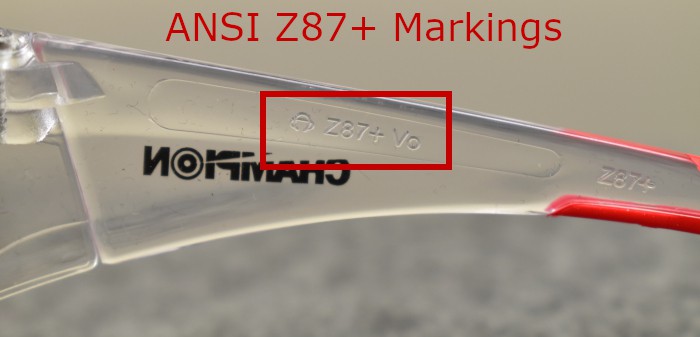
Final Thoughts
In conclusion, the ANSI rating for shooting glasses is a critical factor to consider when purchasing protective eyewear for shooting sports. This rating ensures that the glasses have been rigorously tested and meet the necessary standards for impact resistance and optical clarity. Remember, your eyesight is precious, and it’s crucial to invest in the proper shooting glasses to keep your eyes safe while enjoying your favorite shooting sports.
FAQS
Here are some frequently asked questions regarding ANSI-approved shooting glasses:
Are all shooting glasses ANSI approved?
Unfortunately, not all shooting glasses on the market are ANSI approved. Typically, better or higher quality shooting or safety glasses are built to ANSI specifications. Many of the entry-level or really inexpensive protective glasses are not ANSI approved.
Are prescription shooting glasses also ANSI-approved?
Most of the prescription-based shooting glasses on the market are ANSI approved. In addition, the glasses styles that use prescription inserts are typically ANSI certified as well. However, I recommend checking for the ANSI certification markings or labeling if you are unsure about a pair of RX shooting glasses.
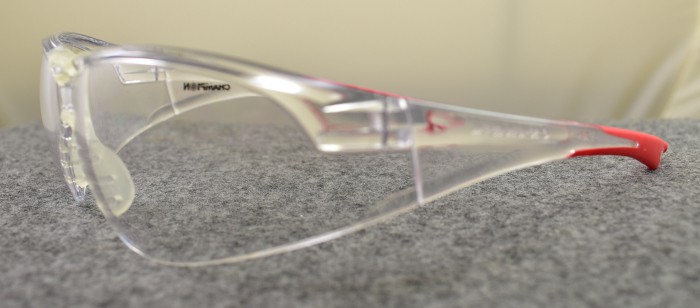
Are ANSI-approved shooting glasses bulletproof?
First, no shooting glasses on the market are bulletproof, and none will stop a traditional bullet fired from a pistol or rifle. Shooting glasses are impact resistant, so they are designed to stand up to a certain amount of impact from items such as:
- BB’s
- Most Pellets (fired from a pellet gun)
- Shotgun pellets (fired from a distance)
- Flying brass
- Powder
It looks like the ANSI-certified safety glasses cost more than non-certified models. Is this correct?
Typically speaking, ANSI-certified shooting and safety glasses cost more than non ANSI-approved models. The increased manufacturing costs associated with meeting the ANSI Z87 impact-resistant standards generally lead to more expensive shooting glasses.
Does the ANSI rating on shooting glasses mean the glasses qualify as ballistic eyewear?
Dictionary.com defines ballistics as:
- “The science of projectiles and firearms.
- The study of the effects of being fired on a bullet, cartridge, or gun. “
The ANSI Z87 rating does not necessarily equate to ballistic shooting glasses. Most shooting glasses also meet one of the two military ballistic standards to qualify as ballistic shooting glasses.
Is ANSI Z87.1 standard the same as the Authorized Protective Eyewear List (APEL)?
No, ANSI and the APEL list are two different sets of standards. The Authorized Protective Eyewear List (APEL) is a list of protective eyewear that meets or exceeds the ballistic impact protection standards for military use. The military uses the APEL list as a starting point when choosing or purchasing protective eyewear.
How do I know if safety glasses meet ANSI Z87.1 safety standards?
Safety glasses that meet ANSI Z87.1 safety standards will be labeled as such by the manufacturer. They must also pass an impact test where a steel ball is shot at the lens at a specific velocity.
What are the eyewear standards for safety glasses and goggles?
The eyewear standards for safety glasses and goggles include the high impact requirements of ANSI Z87.1 and the military standard MIL-PRF-31013.
What is the difference between civilian and military safety eyewear?
Military safety eyewear must meet the MIL-PRF-31013 standard for impact resistance, while civilian eyewear should meet the ANSI Z87.1 standard. Military eyewear is designed to provide more protection in high-risk environments.
Is there an ANSI standard for ballistic eyewear?
Yes, the ANSI standard for ballistic eyewear is ANSI Z87.1.

